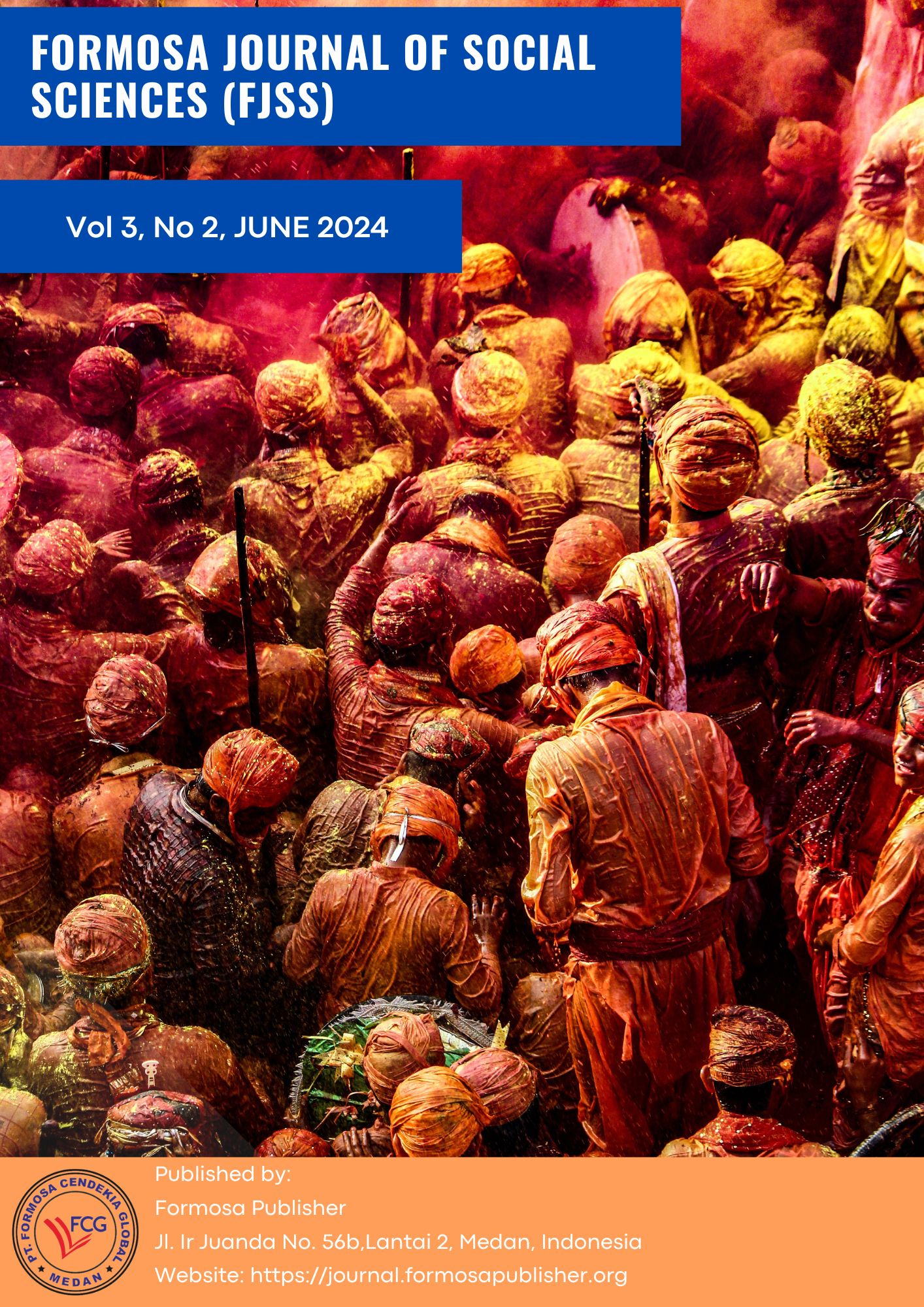Correlation Between Perceived Social Support and Self Efficacy in Final Students Who Are Preparing Thesis
DOI:
https://doi.org/10.55927/fjss.v3i2.10013Keywords:
Perceived Social, Support, Self EfficacyAbstract
This research aims to determine the relationship between perceived social support and self-efficacy in final students who are writing their thesis. This research uses a quantitative research approach with a descriptive type of research. The sampling technique for this research uses a purposive sampling technique with students being the research sample consisting of 203 students using the Krejcie table. Test construct validity by looking at the total item correlation coefficient equal to or greater than 0.138. The instrument reliability test uses Cronbach's alpha value, namely 0.8. The results of this study indicate that there is a positive and significant correlation between Perceived social support and self-efficacy with a correlation value (rxy) of 0.492 with a calculated p value = 0.0001 / P < 0.05
Downloads
References
Cahyana, M. A., & Rozana, A. (2020). Studi Deskriptif Mengenai Perceived Social Support Pada Narapidana Perempuan. 6, 609–614.
Fatimah, S., Manuardi, Fa. R., & Meilani, R. (2021). Tingkat Efikasi Diri Performa Akademik Mahasiswa Ditinjau Dari Perspektif Dimensi Bandura. 4(1), 25–36.
Fitriana, A., Murdiana, S., & Firdaus, F. (2021). Pengaruh Perceived Social Support Terhadap Tingkat Kecemasan Mengerjakan Skripsi Pada Mahasiswa Di Kota Makassar. Journal Of Art, Humanity & Social Studies, 1(6), 75–76.
Kristofora, E., & Hendriati, A. (2021). The Role Of The Quality Of Perceived Social Support In The Emotion Regulation Strategies Of Adolescents In Jakarta.
Mampuni D. (2014). Analisis Faktor-faktor psikologi yang mempengaruhi death axienty.
Mufidah, E. F., Pravesti, C. A., Ardika, D., & Farid, M. (2022). Urgensi Efikasi Diri: Tinjauan Teori Bandura. Prosiding Seminar & Lokakarya Nasional Bimbingan Dan Konseling, 30–35.
Mustafa, P. S. (2023). Tinjauan Literatur Analisis Uji R Berganda Dan Uji Lanjut Dalam Statistik Inferensial Pada Penelitian Pendidikan Jasmani. Jurnal Ilmiah Wahana Pendidikan, 9(5), 571–593. Https://Doi.Org/10.5281/Zenodo.7758162
Oktariani. (2018). Hubungan Self Efficacy Dan Dukungan Sosial Teman Sebaya Dengan Self Regulated Learning Pada Mahasiswa Universitas Potensi Utama Medan. Kognisi Jurnali, 2(1), 26–33. Https://Doi.Org/10.31289/Tabularasa.V2i1.284
Pratama, R., Aisyah, S. A., Sirodj, R. A., Afgan, M. W., Islam, U., Raden, N., Palembang, F., Info, A., & History, A. (2023). Correlational Research. 6, 1754–1759.
Şahin, D. S., Özer, Ö., & Yanardağ, M. Z. (2019). Perceived Social Support, Quality Of Life And Satisfaction With Life In Elderly People. Educational Gerontology, 45(1), 69–77. Https://Doi.Org/10.1080/03601277.2019.1585065
Ulum, M. C. (2018). Hubungan Sikap Mahasiswa Dengan Tingkat Stress Dalam Penyusunan Skripsi Pada Mahasiswa Semsester VIII S1 Keperawatan Stikes Icme Jombang. Skrispi, 111.
Downloads
Published
How to Cite
Issue
Section
License
Copyright (c) 2024 Mila Rahmawati, Imammul Insan

This work is licensed under a Creative Commons Attribution 4.0 International License.








.png)

















